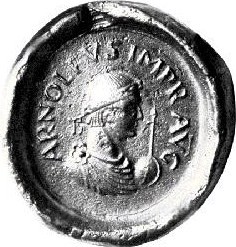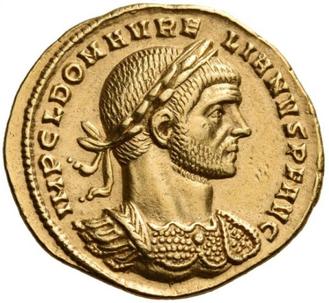
A Prince born illegitimate.
The last imperial days of an imperial dynasty.
And a time when nations were formed.
Story in the evening ...
The last imperial days of an imperial dynasty.
And a time when nations were formed.
Story in the evening ...
https://twitter.com/Arby_K/status/1441228415017709575
Arnulf was born around 850 to Karloman and Liutswindis. Karloman was the son of Louis the German, King of East Francia, but was not married to Liutswindis. In 843, the Carolingian Empire had been divided into three among Louis and his brothers, Lothaire and Charles. 1/10 

In 855, the middle part of the Empire was divided. Karloman revolted against his father in 861 and 864, finally obtaining rule of Bavaria. Karloman's younger brother, Ludwig, was in charge of Franconia and Saxony while the youngest, Charles, received Alemannia. 2/10 



As his father's only son, though illegitimate, Arnulf was put in charge of former Slavic Principality of Carantania, now converted into a March, a peripheral province of the Empire. Louis the German died in 876 and his three sons formalized their division of East Francia. 3/10 

The senior Carolingian line ended in 875 with the death of Emperor Louis. King Charles of West Francia became Emperor, but he too died soon, in 877. His son's death in 879, followed by Karloman's in 880 meant only Arnulf's uncles remained from their generation. 4/10 

While Arnulf retained his role in Carinthia, he developed Bavaria, his father's erstwhile Kingdom, as his base. In the meantime, his uncle, Charles, had been crowned Emperor in 881. By 884, he had reunited the Carolingian Empire. However, his hold over it was not strong. 5/10 



Emperor Charles had no legitimate issue. West Francia was under siege by Vikings, with Count Odo of Paris managing to keep the Vikings out of Paris. Burgundy, Provence and Italy all had powerful nobles, but it was Arnulf who struck first. 6/10 

Arnulf received support across East Francia and he was able to depose his uncle. But his control beyond East Francia was limited. Odo of Paris had become King of West Francia, while Burgundy, Provence and Italy all had their own Kings as well. 7/10 

But he retained influence throughout the Empire. He defeated the Vikings raiding West Francia in 891, at Leuven near River Dyle. He got his son, Zwentibold, crowned as King of Lotharingia in 895. But it was an ongoing war in Italy that got him the imperial title. 8/10 

Italy saw varying control by Spoleto on one side and Friuli on the other. Pope Formosus called Arnulf for support. Arnulf finally came through in 896 and was crowned as Emperor by the Pope. But he had to return to East Francia, though he left his son Ratold in charge. 9/10 

But Ratold had to flee after the Pope's death. While Arnulf was able to gain the suzerainty of Bohemia, his Empire crumbled soon after his death in 899. Zwentibold died in 900 and his remaining son, Ludwig, ruled East Francia and Lotharingia till 911, when he died aged 17. 10/10 

• • •
Missing some Tweet in this thread? You can try to
force a refresh














